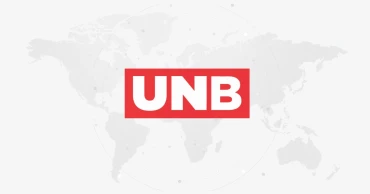treasury bonds
How to Buy Bangladesh Government Treasury Bond: Everything You Need to Know
It’s a fact that investment is the only way to exponentially grow wealth. But the caveat is that investment often comes with risk, sometimes low or sometimes very high. If you are looking to invest without having to worry about risk or loss, then you can consider the Bangladesh Government Treasury Bond (BGTB). Here’s everything you need to know about BGTB, how to buy, and calculate the return on your investment.
What are Bangladesh Government Treasury Bonds?
Before getting into BGTB, let’s talk about bonds. Bonds are essentially an instrument of debt where the investors (buyers of the bonds) loan money to a borrower (corporations or governments).
BGTB is one such bond where the investor loans money to the treasury department of the Bangladesh government. In exchange, the government offers a coupon rate (interest rate for simplification) on the face value of bonds based on the duration of the investment.
Read more: Premortem Analysis: How to Anticipate Failure
Here are some quick facts about BGTB.
- BGTB is a debt instrument issued by the Bangladesh Bank on behalf of the government. - Any resident, non-resident, and institutional investors in Bangladesh can invest in treasury bonds. - The minimum investment amount (face value) is set at 1 Lac BDT. Any amount multiple of 1 Lac can be invested with no upper limit.- Investments can be done over a maturity period of 2, 5, 10, 15, or 20 years. - The bonds are freely tradeable and transferable in primary and secondary markets. - The coupons (yields) are payable on a semi-annual basis.
Read more: How to Raise Angel Investment for Startups in Bangladesh
Difference between Bangladesh Government Treasury Bonds and Sanchaypatra
There isn’t much difference between Sanchaypatra and treasury bonds in the sense that both are debt instruments issued by the government. In principle, BGTB is offered through Bangladesh Bank whereas Sanchaypatra is offered through the National Savings Directorate under the Ministry of Finance.
Typically, Sanchaypatra is issued for a short term ranging between 3 to 5 years. There’s also an upper limit of up to 45 to 50 Lac BDT on individual investment depending on the type of Sanchaypatra. The interest rate also differs year on year which is typically outlined upfront during investment.
Compared to Sanchaypatra, BGTB has no upper limit of investment. The maturity duration can be up to 20 years with a fixed coupon rate for the entire duration of the investment.
In essence, both Sanchaypatra and BGTB are great risk-free investment options. The choice would depend on the investment amount and maturity duration.
Read more: How to Build Social Capital to Grow Your Business
How Does Treasury Bond Work?
Treasury bonds are different from other investment opportunities like stocks and Sanchaypatra in the sense that treasury bonds can only be bought in stipulated auctions by the Bangladesh Bank. The bank and the brokerage firms act as the primary dealer/bidder on behalf of the investor in the auction (primary market).
At the onset of every auction, Bangladesh Bank stipulates a coupon rate (yield rate). Since the treasury bonds are bought in an auction, the bidder needs to set the expected yield rate equivalent to the stipulated rate or less. However, according to recent data, setting the expected yield equivalent to the stipulated rate is enough to secure the desired amount of treasury bond.
The auction calendar (https://www.bb.org.bd/en/index.php/monetaryactivity/auc_calendar) shows the dates of auctions in which you can bid for the bonds. Note that, every auction doesn’t have bonds for every maturity date. For example, the auction of 21st May 2024 only has bonds with 10-year maturity. If you want to invest in say 2-year maturity bonds, you will have to wait till the bonds become available on a subsequent auction date.
Read more: Gold vs Diamond: Which Should You Choose for Investment?
The bonds bought in primary market bidding can be sold in the secondary market. For example, you need to sell your bonds before maturity. In that case, you will have to submit a written application to the bank or brokerage firm requesting sales of your bond. The bank or the brokerage firm will then direct the sales to BB and deposit the equivalent cash in your account.
1 year ago
DSE market capitalisation increased by Tk4.5 lakh crore in 2022
The market capitalisation of the Dhaka Stock Exchange (DSE) increased by Tk4.47 lakh crore in the outgoing year 2022, as the 250 treasury bonds started trading in the DSE.
Although the index and the share price of most of the companies fell, the market value of 250 treasury bonds and Islamic Sukuk bonds started trading in the capital market for the first time in the DSE.
DSE data shows DSE started trading in 2022 with a market capitalization of Tk 3.14 lakh crore. Then on October 10, 2022, 250 government securities were listed on DSE. The market cap stood around Tk7.73 lakh crore. The market cap slightly decreased to Tk7.61 lakh crore at the end of the year.
Read more: Shakib’s company involved in share manipulation, DSE investigation finds
Among the transaction, the trade volume of the block market was Tk14253.19 crore, which is 6.4 percent of the total transaction. This ratio was 3.97 percent of the total transaction in the previous year. The transactions in the block market have increased compared to the previous year (2021).
The investors in the capital market passed another year, along with frustration and uncertainty in the capital market due to the global recession, which erupted from the Covid-19 pandemic and the Ukraine-Russia war.
Chairman of the Bangladesh Securities and Exchange Commission (BSEC) Professor Shibli Rubayat –Ul-Islam told UNB that the regulator is working to improve the market situation through diversified products.
Read more: DSE share trading between 10am and 2:30pm from tomorrow
“But the global situation, which is beyond our control, has created uncertainty in several sectors including capital market,” he said.
3 years ago



